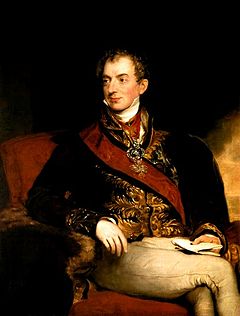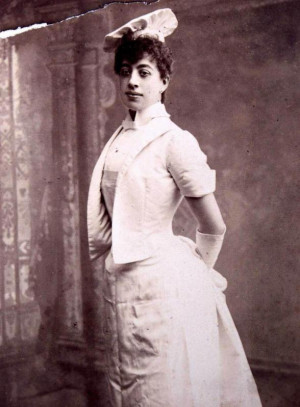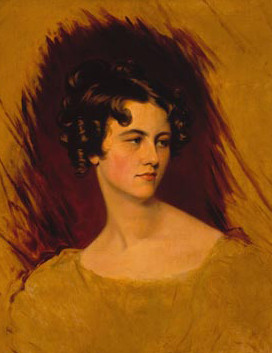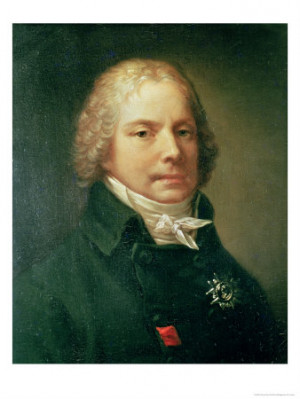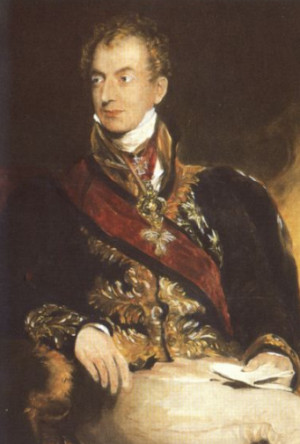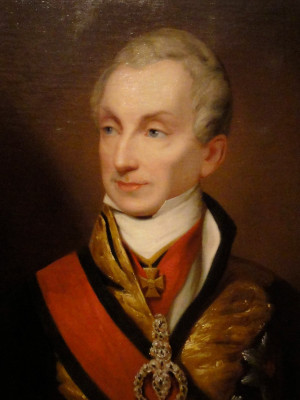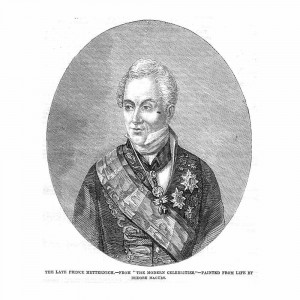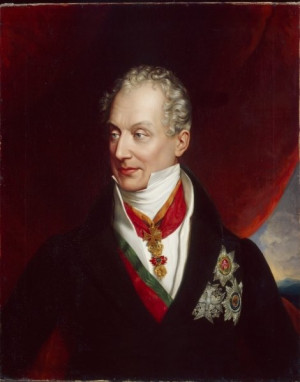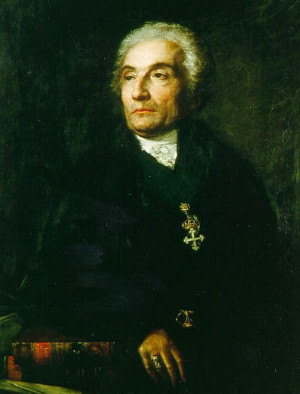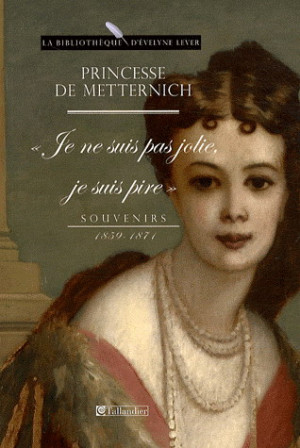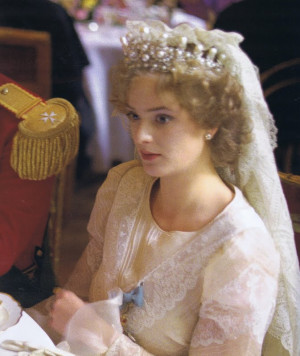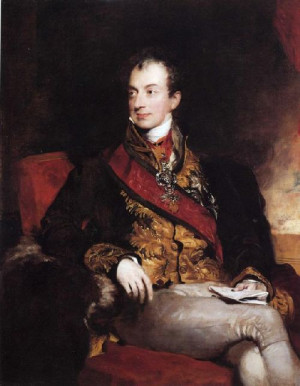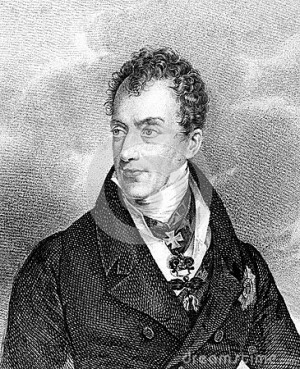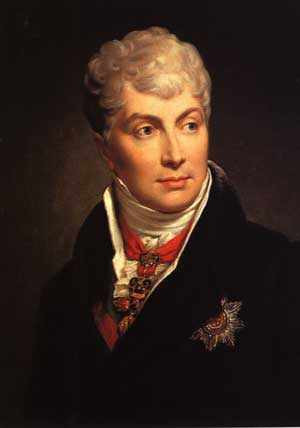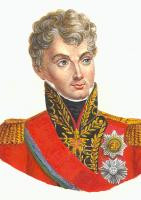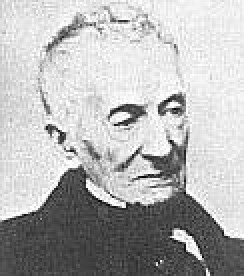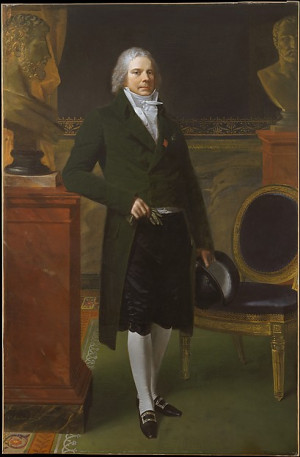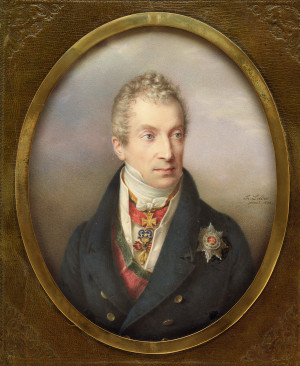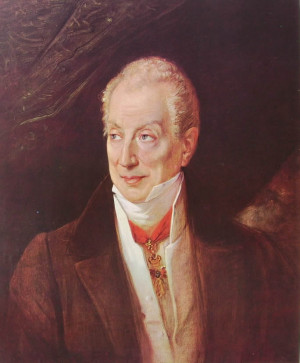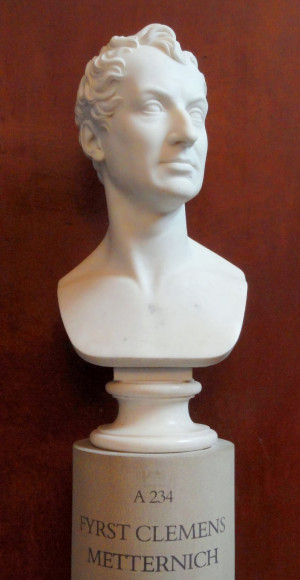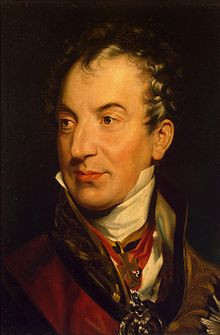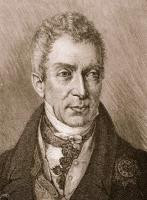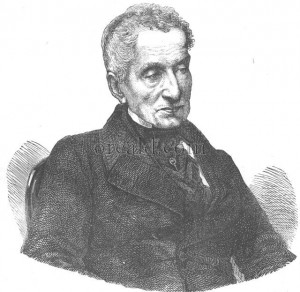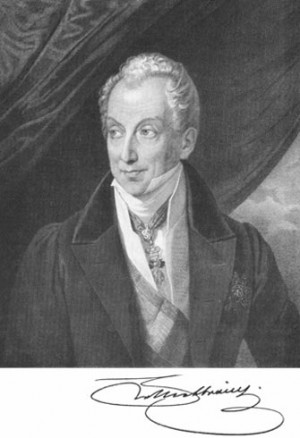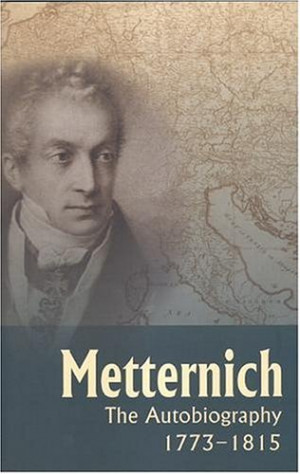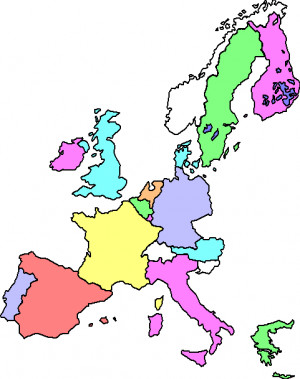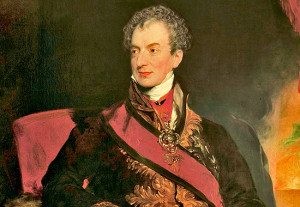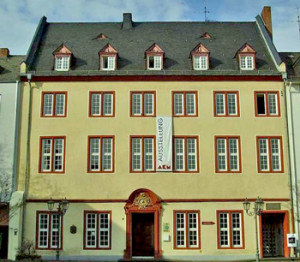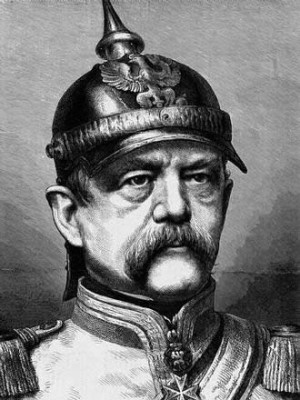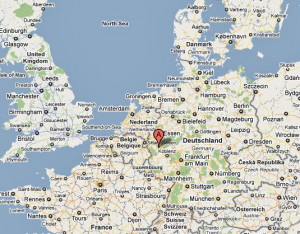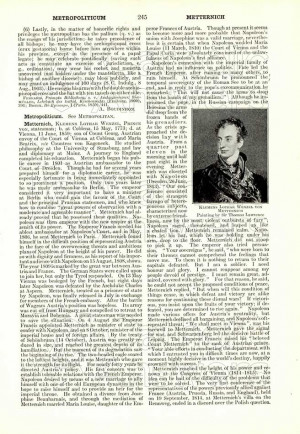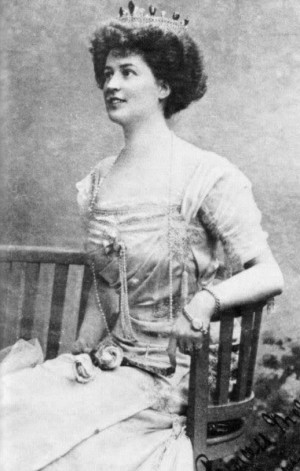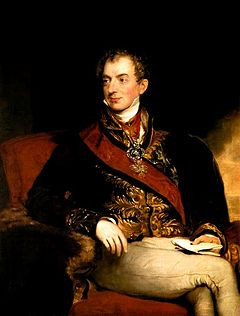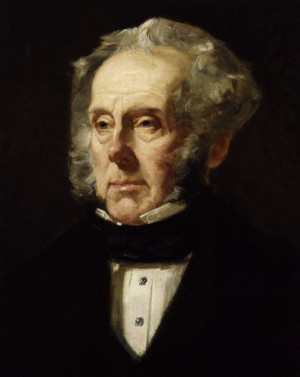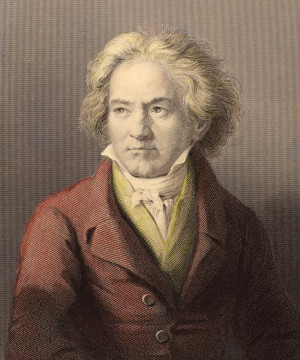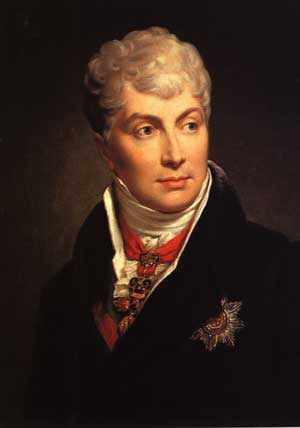Prince Metternich — Austrian Politician born on May 15, 1773, died on June 11, 1859
Prince Klemens Wenzel von Metternich was a politician and statesman of Rhenish extraction and one of the most important diplomats of his era, serving as the Austrian Empire's Foreign Minister from 1809 and Chancellor from 1821 until the liberal revolutions of 1848 forced his resignation. One of his first tasks was to engineer a détente with France that included the marriage of Napoleon to the Austrian archduchess Marie Louise. Soon after, he engineered Austria's entry into the War of the Sixth Coalition on the Allied side, signed the Treaty of Fontainebleau that sent Napoleon into exile, and led the Austrian delegation at the Congress of Vienna that divided post-Napoleonic Europe amongst the major powers. For his service to the Austrian Empire he was given the title of Prince in October 1813. Under his guidance, the "Metternich system" of international congresses continued for another decade as Austria aligned herself with Russia and, to a lesser extent, Prussia. This marked the high point of Austria's diplomatic importance, and thereafter Metternich slowly slipped into the periphery of international diplomacy. At home, Metternich held the post of Chancellor of State from 1821 until 1848, under both Francis I and his son Ferdinand I. After brief exile in London, Brighton, and Brussels that lasted until 1851, he returned to the Viennese court, this time to offer only advice to Ferdinand's successor, Franz Josef. Having outlived his generation of politicians, Metternich died at the age of 86 in 1859... (wikipedia)
